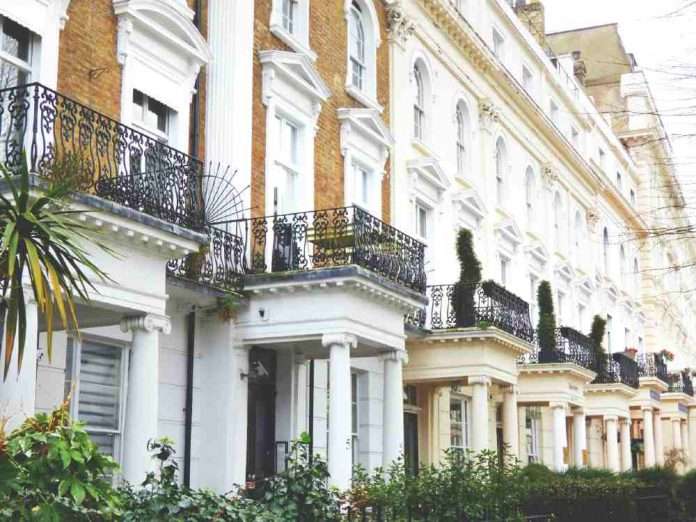Rental rooms have always been one of the basic requirements while someone makes the plan of changing city, shifting place, while starting a new journey.
If you’re moving to London, along with your visa or work permit, you have to also focus on the kind of rental property you and your family would want to move in to. The accommodation you look for should be compatible with your needs and offer you the comfort of a home.
If your family has been living in london for quite sometime or looking for a flat to rent in London, there are several factors that needs to be considered.
For many people, living in a rental property seems more feasible. It saves them from the massive deposits needed to buy a home, continuing maintenance costs and monthly payments, and allowing them to move much freely when they want to change jobs. To put simply, if you rent a home, you have more flexibility and freedom.
We have put together 7 things to check when renting a flat in London.
- Research the Area
Digging details about a neighborhood before moving in can save you future complications. That is why checking the locality and surroundings of your new home is of the essence.
- Travelling Time
Flat hunting? You might want to SearchSmartly to save your travelling cost & time. A location where you can commute to a particular address without the need for a drive. There are several factors to consider, and the walkability score is among the first things to look out for.
- Affordability
Another critical aspect to look out for before renting an apartment or a house is the lifestyle’s affordability. Your budget will determine how comfortable you can survive in any state or neighborhood.
City centers are more expensive compared to the countryside with London leading. Opt for a community where the house rent compares to the average earnings for that area.
- Family Safety
Also, digging up crime statistics should be on your bucket list while house hunting. The safety of you and your family should always come first. Because real estate agents are not allowed to disclose such intimate details by law enforcement, you should take it upon yourself to conduct thorough research and make inquiries on the neighborhood’s crime rates.
- Age of Property

If you want to avoid the hassle of frequent repairs, always insist on the property’s age. Renting old apartments can be stressful and appalling. Anything from drafty windows and plumbing issues, you will undoubtedly have a hard time getting comfortable.
While most home buyers and renters usually focus on the price and location, a property’s age is a fundamental aspect to look out for.
-Who manages the property?
It is necessary to ask for information about the house before handing out a security deposit. Since most old houses and apartments will have old water heaters, get ready for a high cost of utility bills (if they are not included in the rent). Old heaters are not energy saving compared to other modern appliances.
However, it all depends on your preference; if you love an old house’s vintage and charm, you can opt to upgrade the amenities. If you are a retro-rental enthusiast, there are few things to consider before renting a home. Ensure you check the flat for efficiency of the utilities and appliances. Also, watch out for peeling paint and water damages. This may cost you in the long run.
- Set a budget
Before you start looking at places and find your perfect home, you must set a budget. You should know how much it will cost you to live in that property and area.
One principle you must follow is that your rent should not be more than one-third of your monthly income.
Contemplate the following costs that you will incur when you rent a place. To be on the safer side, you should overestimate these costs.
- Property’s deposit
- Letting agent’s fee (this will vary between different agents)
- First month’s rent
- Maintenance charges
- Utility bills such as electricity, water, gas, and WIFI (ask the letting or landlord, how much were the average bills for previous tenants)
- Council tax
- Food
- Cleaning supplies
- Gym membership
- Entertainment
- Parking charges
- Public transport charges
- Moving costs such as packers and movers or van hire
- If the property isn’t furnished, you’ll need kitchen supplies, utensils, and crockery.
- You might have to invest in furniture if the property isn’t furnished and you don’t own any furniture.
- One-off expenses such as towels, sheets, and lamps, among others.
- Pet Policies

Most property owners issue their tenants a lease that dictates the rules and regulations around pet ownership. Countless rental units across the UK do not allow pets, and if they do, they are accompanied by a lot of rules and regulations depending on the type of breed and size.
If you are a pet owner, you understand that they are also part of the family; hence getting a suitable welcoming home is vital. Avoid signing any lease that is against ownership of pets.
Always read through the policies and make sure they are pet friendly before renting an apartment. Also, do thorough research on animal-friendly listings and realtors.
You can also put together a pet resume to create a favorable profile for your pet. Include records for vaccination and proof that your pet has undergone proper behavioral training.
- Availability of Social Amenities
While choosing your new home, you should always consider a variety of factors per social amenities beforehand. Ensure your new home location is close to your workplace, a reliable shopping center, and a good school.
If you are a parent, you want to make sure your kids have access to the best schools and playgrounds.
Moving into a new neighborhood is always a new adventure. On the other hand, your home also provides you with comfort and sanctuary. This is why you need to look out for the best social amenity that is easily accessible for you to spend time with friends and family.
- Look for the Right Home
The foremost step to find the right home is to find the best area. See how well-connected it is to your office, nearby train station, shops, parks, or gym. If you are going to use public transport to work, check how long your daily commute will be and the cost.
Check the locality and get a feel for the surrounding area. You can ask the current tenants about the neighbours and locality. Your letting agent will also be able to give you information about the locality.
Try using the following checklist to cover off key questions about the area:
- Is it a quiet or noisy area?
- How is parking?
- Are neighbouring properties appropriately maintained?
- Is the area safe to walk in the evening or dark?
- Is the street lighting good?
- Are CCTV cameras covering the area?
- How safe is it? a good way to check this is by checking the crime rate here
- View Properties
Once you are out viewing the properties consider this checklist as a great starting point:
- Check with your agent and landlord about the annual gas safety check and Gas Safety Certificate.
- Ask for the property’s Energy Performance Certificate (EPC). The rating from A-G will help you understand how efficient the property is energy-wise and estimate the costs.
- Legally, landlords have to make sure that the electrical systems and appliances are safe. The appliances must have a PAT (portable appliance test) sticker on plugs.
- Check the condition of the furniture.
- Check all the details in your contract so that you have all the necessary information.
- Check if all doors and windows lock properly.
- Look for a working burglar alarm.
Following that you might want to use some or all of the following questions/tips to help make a better informed decision:
Questions to ask the current tenant
- Why are they moving out?
- How is the landlord?
- How are neighbours?
- Are there any red flags to watch out for?
- How much is the council tax on the property?
Checking the condition of the house
- Look for damp patches such as mould, smells, and peeling wallpapers.
- Check the plumbing: water pressure, taps, and drains.
- Check the central heating and cooling.
- Look for any cracks in walls or tiles.
Questions for the landlord or agent
- How long is the tenancy?
- Why are the current tenants vacating?
- Can you change the decor?
- Are pets allowed?
- Is the property furnished? If yes, what is included?
- Which bills do you have to take care of?
- For which conditions, the deposit will not be refunded?
- By which date of the month, should you deposit the rent?
- Is there a break agreement for the lease?
- What is the policy for subletting?
- How do you report a problem in the house?
- Will they clean the place before you move in?
- Are there any house rules?
- Is there any penalty if you pay rent late?
The suggestions mentioned above should be the complete guide before you and your loved ones move into a rented home.
 By Taha Dar – The founder of SearchSmartly. SearchSmartly is a property matchmaking platform making renting faster and easier for tenants
By Taha Dar – The founder of SearchSmartly. SearchSmartly is a property matchmaking platform making renting faster and easier for tenants
Sponsored Post.
